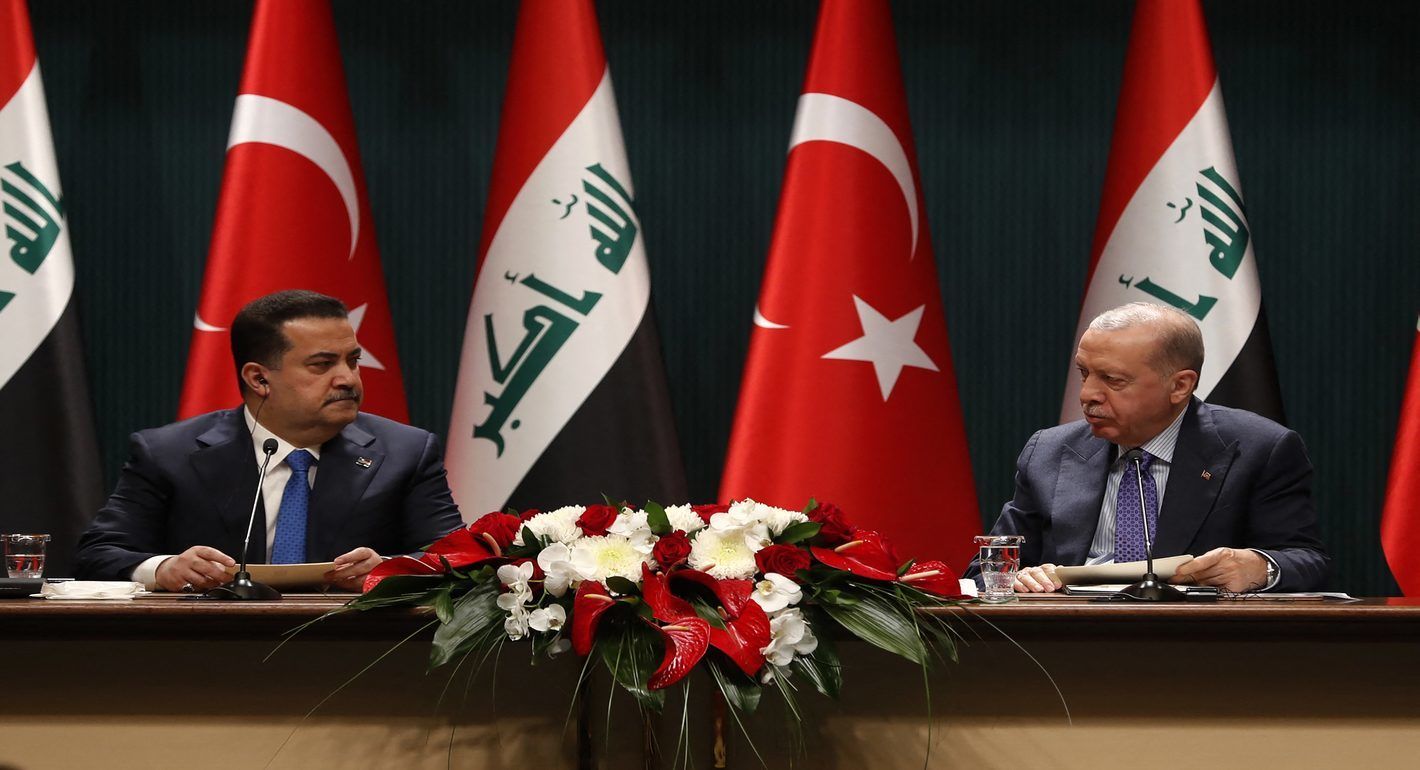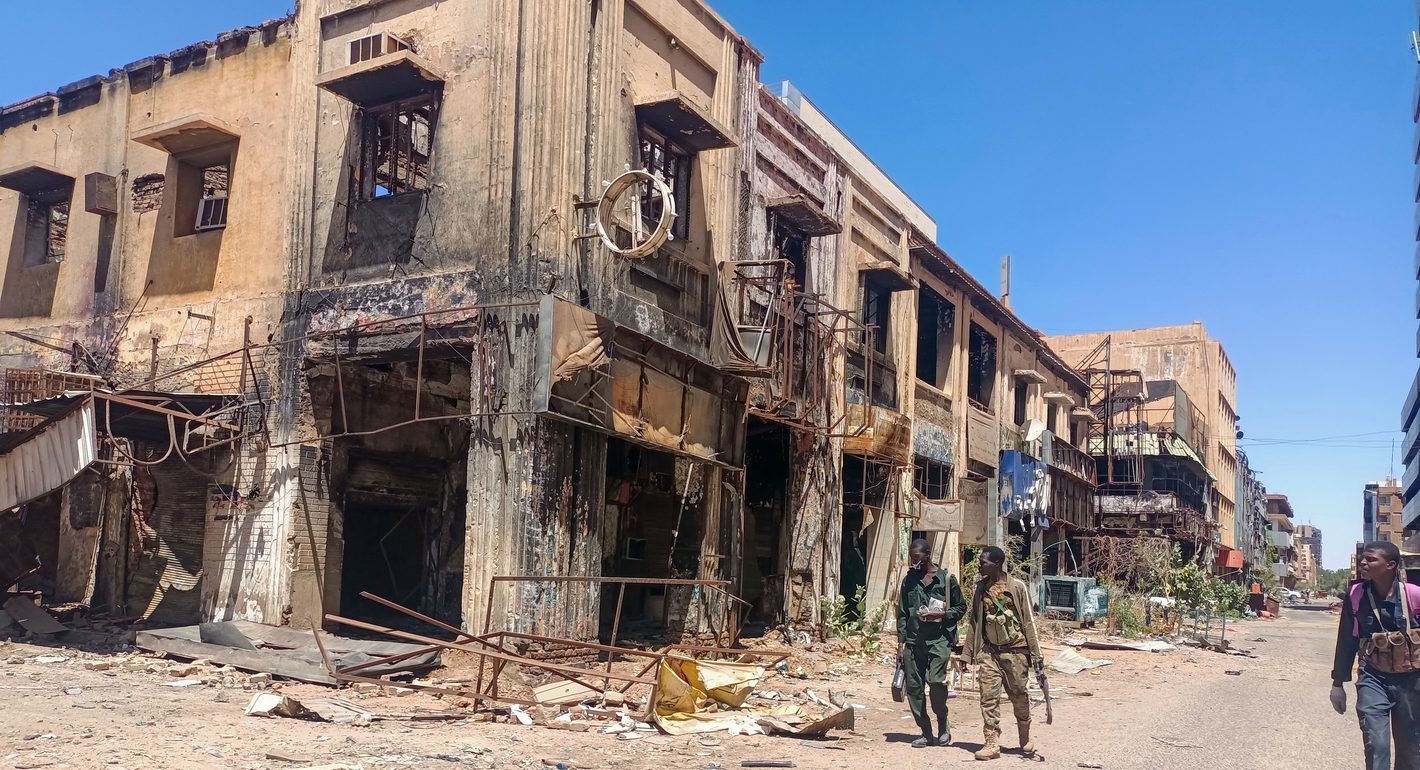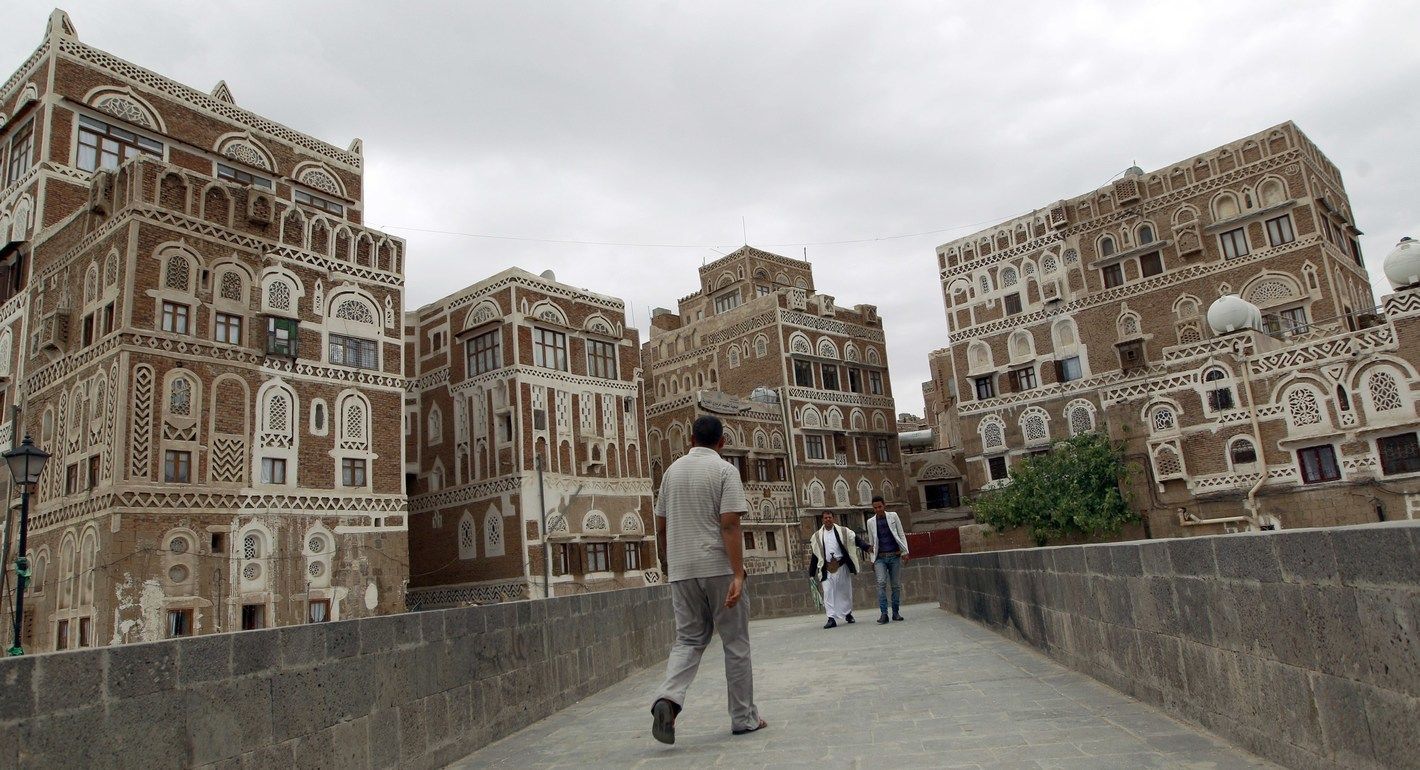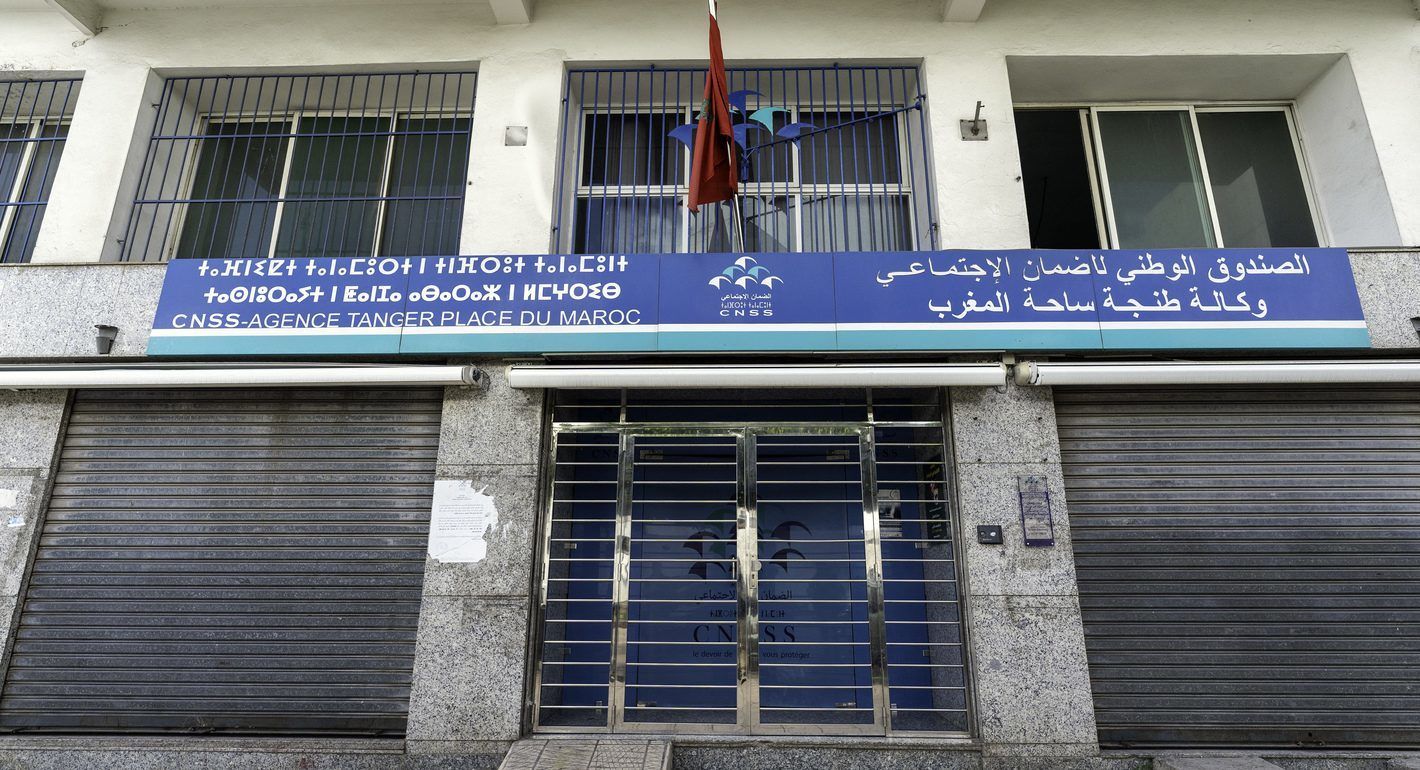Thomas Carothers, McKenzie Carrier
{
"authors": [
"Thomas Carothers"
],
"type": "commentary",
"blog": "Sada",
"centerAffiliationAll": "",
"centers": [
"Carnegie Endowment for International Peace"
],
"collections": [],
"englishNewsletterAll": "",
"nonEnglishNewsletterAll": "",
"primaryCenter": "Carnegie Endowment for International Peace",
"programAffiliation": "",
"programs": [],
"projects": [],
"regions": [
"Iraq"
],
"topics": [
"Political Reform"
]
}
REQUIRED IMAGE
Political Decompression in Iraq
Though Iraqi political life since the ouster of Saddam Hussein may appear formless, it is following certain patterns familiar from other post-authoritarian settings. All countries where an authoritarian regime suddenly collapses go through a period of decompression in which political oxygen flows very rapidly into a previously closed system, producing disorientation and confusion.
Though Iraqi political life since the ouster of Saddam Hussein may appear formless, it is following certain patterns familiar from other post-authoritarian settings. All countries where an authoritarian regime suddenly collapses go through a period of decompression in which political oxygen flows very rapidly into a previously closed system, producing disorientation and confusion. In Iraq this process is proving to be especially intense. This is because of the extraordinarily high level of political repression that existed under Saddam Hussein, which prevented any organized political opposition from operating within the country and preparing itself for post-Saddam politics. It is also because so far at least the U.S. occupying forces are not permitting the remaining elements of the Baath Party to participate in the reconstruction of authority. Thus, unlike in some other post-authoritarian transitions (such as in Central Asia), there is no rapid restabilization under a reconfigured old guard. The political vacuum is, in short, unusually severe.
Intense though it is, the political decompression in Iraq nevertheless shares some of the major features of related processes that have occurred in other post-authoritarian countries:
• New or long-suppressed political groups, of all shapes and sizes, spring to life in large numbers, with a resulting fragmentation of the political landscape. These actors usually vary greatly in their significance, with many of the new political parties of little lasting significance but the reemergent sociopolitical movements, which do not immediately take the form of parties, being of greater long-term consequence. In Iraq, there are already dozens of new and old political entities starting to assert themselves, some as parties, some just as movements.
• The new or resurgent political actors engage in a fervid, often unseemly rush to occupy the new political space, making representational claims of very uncertain legitimacy and evidencing little spirit of positive cooperation or coalition building. The political scramble is well under way in Iraq, with the various actors racing to stake out political terrain.
• The bulk of ordinary citizens are perplexed and demoralized by the new political scene. They do not hurry to engage in deliberative political life but rather withdraw and wait for some visible stability or else they latch onto political figures who come forward offering some sort of sweeping, simplistic message, often of a highly nationalistic or demagogic nature. Most Iraqis are clearly perplexed by the political flux in their society and are waiting cautiously for greater political definition to take place.
• Common crime increases rapidly with the breakdown of the old security forces and the resulting collapse of authority and fear as well as the entry into the society of former military, police, and internal security agents who seek new, often illicit means of livelihood. The problem of security in Iraq has of course been paramount.
• Outgoing political and administrative elites, aware that their political access to money and power is semi-permanently foreclosed, quickly try to leverage what personal resources they still have (savings, connections, education) to enter business life, often through shady enterprises, but with the intent of over time stabilizing and relegitimizing their social position. There are signs that this phenomenon is starting to occur in Iraq although it is too early too tell definitively.
These features of political decompression do not necessarily point to any fixed political outcome. Some countries decompress only to lapse back to authoritarianism. Others move forward into successful pluralism and freedom. Still others decompress then descend into chaos. Although the severe period of decompression usually passes fairly quickly, within six to twelve months, most of its features linger on even as political life begins to gain definition and stability. The multiplication of political actors, for example, often tapers off only slowly. In Bosnia's 2002 general elections, six years after the Dayton Accords, 57 parties and nine coalitions competed for office. Similarly, the heightened crime can unfortunately embed itself, as evidenced by the ongoing extremely high crime rate in post-apartheid South Africa or post-civil war El Salvador. Dubious new elites can become a long-term part of the country's future, as in Romania, where the new business elite, largely formed out of former communist apparatchiks who hurriedly converted to business after the fall of Ceausescu, is now deeply rooted.
Thomas Carothers is a senior associate at the Carnegie Endowment for International Peace.
About the Author

Harvey V. Fineberg Chair for Democracy Studies; Director, Democracy, Conflict, and Governance Program
Thomas Carothers, director of the Carnegie Endowment for International Peace’s Democracy, Conflict, and Governance Program, is a leading expert on comparative democratization and international support for democracy.
- The Trump Administration’s Tangled Talk About Democracy AbroadArticle
- The Startling Reversal of U.S. Global Anti-Corruption PolicyArticle
McKenzie Carrier, Thomas Carothers
Recent Work
Carnegie does not take institutional positions on public policy issues; the views represented herein are those of the author(s) and do not necessarily reflect the views of Carnegie, its staff, or its trustees.
More Work from Sada
- A House Divided: How Internal Power Struggles Shape Iraq’s Foreign PolicyCommentary
Iraq’s foreign policy is being shaped by its own internal battles—fractured elites, competing militias, and a state struggling to speak with one voice. The article asks: How do these divisions affect Iraq’s ability to balance between the U.S. and Iran? Can Baghdad use its “good neighbor” approach to reduce regional tensions? And what will it take for Iraq to turn regional investments into real stability at home? It explores potential solutions, including strengthening state institutions, curbing rogue militias, improving governance, and using regional partnerships to address core economic and security weaknesses so Iraq can finally build a unified and sustainable foreign policy.
Mike Fleet
- A War Fueled by Hate Speech: Sudan’s Fall into FragmentationCommentary
Hate speech has spread across Sudan and become a key factor in worsening the war between the army and the Rapid Support Forces. The article provides expert analysis and historical background to show how hateful rhetoric has fueled violence, justified atrocities, and weakened national unity, while also suggesting ways to counter it through justice, education, and promoting a culture of peace.
Samar Sulaiman
- Kuwait’s Bureaucracy at a Crossroads: Why Government Innovation Stalls and How Analytics Can Reignite ReformCommentary
Kuwait’s government has repeatedly launched ambitious reforms under Kuwait Vision 2035, yet bureaucratic inefficiency, siloed institutions, and weak feedback mechanisms continue to stall progress. Adopting government analytics—real-time monitoring and evidence-based decision-making—can transform reform from repetitive announcements into measurable outcomes.
Dalal A. Marafie
- Sana'a: The Crisis of Chaotic Street Naming and Absent Urban PlanningCommentary
The chaos of street naming in Sana’a reflects the deep weakness of the Yemeni state and its failure to establish a unified urban identity, leaving residents to rely on informal, oral naming systems rooted in collective memory. This urban disorder is not merely a logistical problem but a symbolic struggle between state authority and local community identity.
Sarah Al-Kbat
- The Political Economy of Social Data: Opportunities and Risks of Digitizing Morocco’s Social Targeting SystemCommentary
While Morocco’s shift to a digitized social targeting system improves efficiency and coordination in social programs, it also poses risks of exclusion and reinforces austerity policies. The new system uses algorithms based on socioeconomic data to determine eligibility for benefits like cash transfers and health insurance. However, due to technical flaws, digital inequality, and rigid criteria, many vulnerable families are unfairly excluded.
Abderrafie Zaanoun






